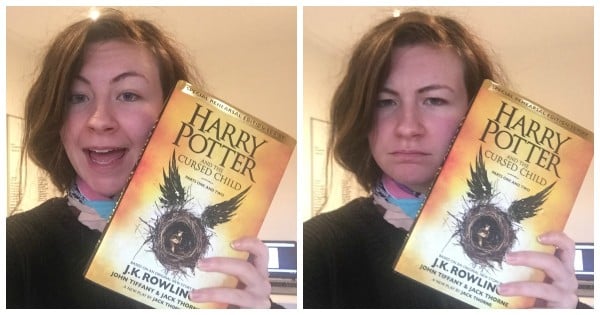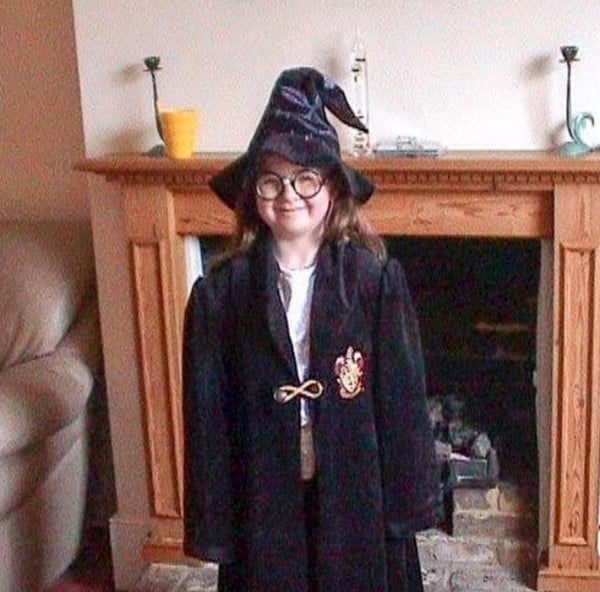
WARNING: THERE ARE SPOILERS FOR HARRY POTTER AND THE CURSED CHILD IN THIS STORY. YOU HAVE BEEN WARNED.
The Harry Potter series and tears are synonymous for me.
I cried when Sirius died. I sobbed when Fred was killed. But when Dumbledore died in Harry Potter and the Half Blood Prince? Crying is an understatement – I howled and ugly-cried until my face was swollen and the pages smudged and tear-stained.
Yes, I get a little too attached to book characters.
I was ready to repeat this with Harry Potter and the Cursed Child, the final ‘installment’ of the series released yesterday. After securing myself a copy, I shut myself in my room, curled up on my bed and started to read, exactly as I had done just over nine years ago with the final book and all the books before it.
I really wish I hadn’t.
A few hours later (this one’s nowhere near the ready-made doorstop size as its predecessors) I closed the book.
I hadn’t cried once.
The pages were pristine. There was a faint smile or internal ‘ha!’ in a few places but despite the usual events of death, admirable displays of friendship and good triumphing over evil, my eyes were dry. NOTHING. (And this coming from someone who tears up in adverts.)



Top Comments
Let me just say this - I've seen it, and in person it was *fantastic*. Like, cry your eyes out, spectacular visuals (literally, they transformed on stage with a polyjuice potion and you couldn't tell where one person ended and the other started).
Yes, some things annoyed me (rules were broken that were previously established in the series), but when it comes to a play format, it was kind of necessary.
Seriously, I've seen loads of shows, and this was up there amongst my favourites. I understand that a lot of people aren't able to see it, therefore are left with only what they read as a script. I hope they release a theatrical edition of the play recorded so people can see what it is that makes the majority of those that saw the play love it.
p.s. Scorpius is my spirit animal.
I've never read a HP book or watched the movies. But I hope my Gilmore Girls: A Year in the Life (revival) expectations are not dashed like this!